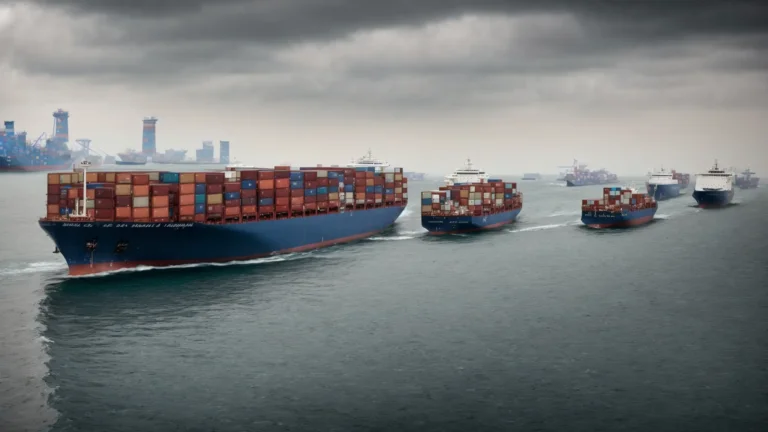In the labyrinthine dance of global commerce, the role of an Importer of Record (IOR) emerges as the linchpin, holding together the myriad threads of import and export into a cohesive pattern.
Operating as the keystone of international trade, the IOR bears the weight of regulatory compliance, ensuring the seamless transition of products from one shore to another.
With the precision of a maestro, this entity orchestrates the necessary documentation and liaisons with border guardians such as the Canada Border Services Agency and Customs and Border Protection.
It’s a role that combines foresight akin to a chess grandmaster with the meticulous diligence of an archivist.
Keep reading to unfurl the intricate tapestry of responsibilities and challenges that define an Importer of Record’s mission.
The Indispensable Importer of Record
- The Importer of Record Serves as the Linchpin of Compliance, Ensuring Goods Meet Import Laws and Regulations
- Mastery Over the Complexities of International Trade, Including Customs Requirements, Is Vital to an Importer of Record’s Role
- Strategic Engagement of Customs Brokers Can Enhance Navigation Through Regulatory Eddies and Currents
- The Importer of Record Must Diligently Manage Financial Responsibilities Such as Import Duty Payments to Sustain Trade Flow
- Proactive Risk Management Strategies, Including Cargo Insurance and Supply Chain Audits, Protect Against the Unpredictability of Cross-Border Trade
Defining the Importer of Record in Global Trade
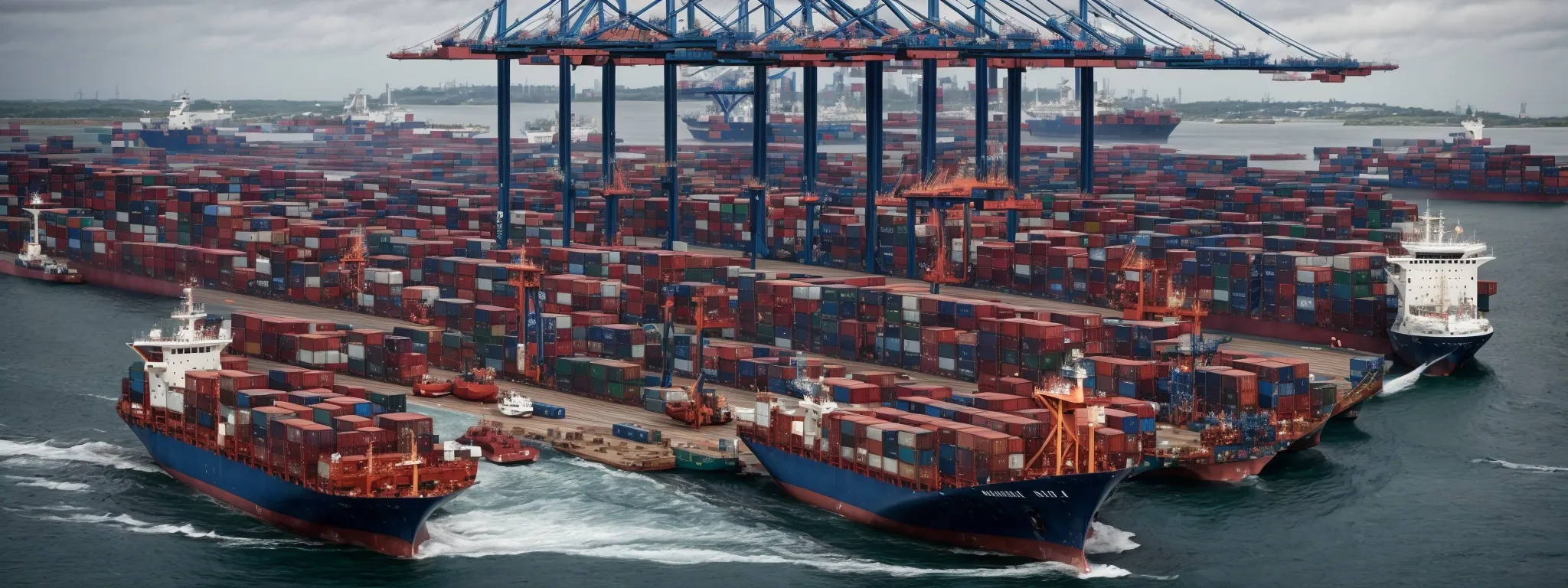
In the intricate tapestry of global trade, the figure of the Importer of Record (IOR) emerges as a crucial thread, essential for maintaining the pattern’s integrity.
This designated party assumes a pivotal role within the import process, becoming the appointed guardian of compliance with the labyrinth of customs regulations and the bearer of responsibility for imported goods.
Much like a seasoned captain navigating treacherous waters, the IOR ensures that the vessel of international commerce sails smoothly, abiding by the dictates of the destination country’s laws and regulations.
The distinction between an Importer of Record and a consignee, though nuanced, is as significant as the choice between two diverging paths, each leading to different obligations and liabilities.
Engaging with this crucial distinction equips companies and individuals with the foundational knowledge to embark upon the complex journey of international trade.
The Legal Definition and Responsibilities
In legal terms, an Importer of Record is defined as the individual or entity responsible for ensuring that imported goods comply with all the import laws and regulations of the destination country. These obligations primarily consist of the accurate declaration of product classification, payment of import duties and taxes, and the management of import documentation.
Serving as the linchpin of accountability, the Importer of Record accepts the legal liability for the imported merchandise. This includes interacting with government organizations such as Customs and Border Protection in the United States, or the Canada Border Services Agency in Canada, to satisfy all import requirements.
| Responsibility | Agency | Legal Requirement |
|---|---|---|
| Product Classification | Customs Authority | Accurate tariff assignment under Customs Tariff |
| Payment of Import Duties | Customs and Border Protection (CBP)/Canada Border Services Agency (CBSA) | Settlement of all dues per Customs Law |
| Documentation Management | Government Agencies | Proper filing of Entry Documents, Power of Attorney (POA), and others |
Distinction Between Importer of Record and Consignee
Amidst the interlacing scenarios of international commerce, understanding the unique roles of an Importer of Record and a consignee is akin to discerning the individual brushstrokes within a grand mural. While the Importer of Record is entrusted with the legal compliance of the importation process, the consignee is the recipient whose name adorns the labyrinth of paperwork: they await the product’s arrival yet may carry none of the Importer of Record’s legal burdens.
Strategically, the Importer of Record acts as a lighthouse, guiding the journey of goods through the tempest of customs requirements and regulations, whereas the consignee might merely be the designated beachhead, the final resting place of the goods upon safe arrival. The Importer of Record, meanwhile, shapes the narrative of the international shipment with responsibility for navigating the legal intricacies of the voyage:
- Securing the import permit that serves as a key to the kingdom of commerce
- Orchestrating the choreography with customs brokers and agencies
- Ensuring the cargo insurance is a suit of armor against unforeseen adversities
Key Responsibilities of an Importer of Record
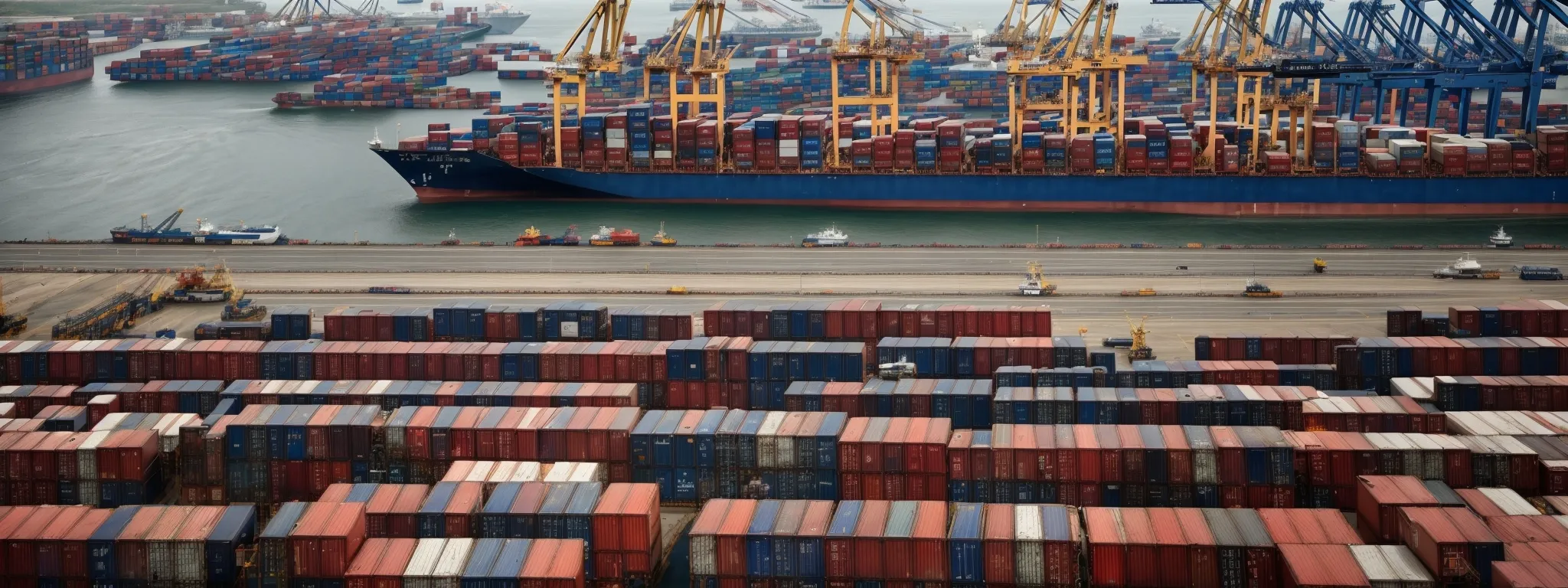
Amidst the bustling corridors of global trade, the Importer of Record stands as the custodian of order, the steward whose due diligence keeps the gears of commerce well-oiled and in motion.
Tasked with ensuring that every transaction adheres to the tapestry of trade regulations, their role cannot be overstated.
From the precision required for accurate documentation and record-keeping to the financial responsibilities of settling duties and taxes, the IOR holds the tiller steady as goods make their passage across international borders.
Shaping the intricate puzzle of trade one piece at a time, the Importer of Record silently choreographs a dance of legal and fiscal deference, balancing the scales of global commerce in a world teeming with complexity.
Ensuring Compliance With Trade Regulations
In the grand theater of global trade, the Importer of Record (IOR) takes center stage, embodying the quintessence of regulatory compliance. It is this entity or individual who ensures that every chord of the import symphony is in harmony with the destination country’s customs laws, a meticulous maestro orchestrating every document and duty with unfaltering precision.
The IOR operates with a vigilance that would rival the guardians of ancient citadels, meticulously reviewing and endorsing every necessary detail to safeguard adherence to trade regulations. Such scrutiny encompasses an omniscient understanding of the Customs Tariff, ensuring each product’s classification resonates with legal accuracy:
| Aspect of Compliance | Responsibility | Action |
|---|---|---|
| Customs Tariff Accuracy | Importer of Record (IOR) | Validation of correct product classification |
| Legal Adherence | Importer of Record | Maintenance of compliance with customs laws |
Accomplishing this degree of compliance is akin to navigating an intricate labyrinth by starlight, where each step is measured against the backdrop of government scrutineers. The IOR, as the import process guardian, ensures that the constellation of regulations is unfailingly mapped out, preventing the perilous pitfalls of non-compliance.
Accurate Documentation Handling and Record-Keeping
In the grand bazaar of international trade, the Importer of Record operates as the vigilant archivist, consistently ensuring that all supporting documentation achieves the seal of approval from customs authorities. An impeccable compendium of records is the Importer of Record’s grimoire, safeguarding against the chaos of compliance errors.
Each parchment, from entry documents to a meticulously endorsed Power of Attorney (POA), bears the weight of legal requirements, much like individual bricks in the fortress of international commerce. A disciplined continuum of record-keeping not only illuminates the path for smooth customs clearance but also fortifies against the tremors of potential audits:
| Document Type | Significance | Importer of Record’s Role |
|---|---|---|
| Entry Documents | Customs Clearance | Verification and submission for import approval |
| Power of Attorney (POA) | Authorization to Act | Accurate execution and renewal as necessary |
Payment of Duties and Taxes on Imported Goods
In the grand fiscal concerto of global trade, the Importer of Record plays the critical role of financial conductor, ensuring the harmonious transfer of funds for duties and taxes to the rightful government coffers. This pivotal agent orchestrates the symphony of payments, striking a crucial balance between the legalities of trade and the precise disbursement of financial obligations.
Acting with the exactitude of a seasoned accountant amidst the chaotic waltz of importation, the Importer of Record scrupulously calculates the import duty owed, as decreed by customs law. It submits funds with punctilious care, avoiding the discordant notes of penalties and interest that could arise from any misstep in this crucial part of the import process, thus preserving the smooth rhythm of trade.
Licensing Requirements for an Importer of Record
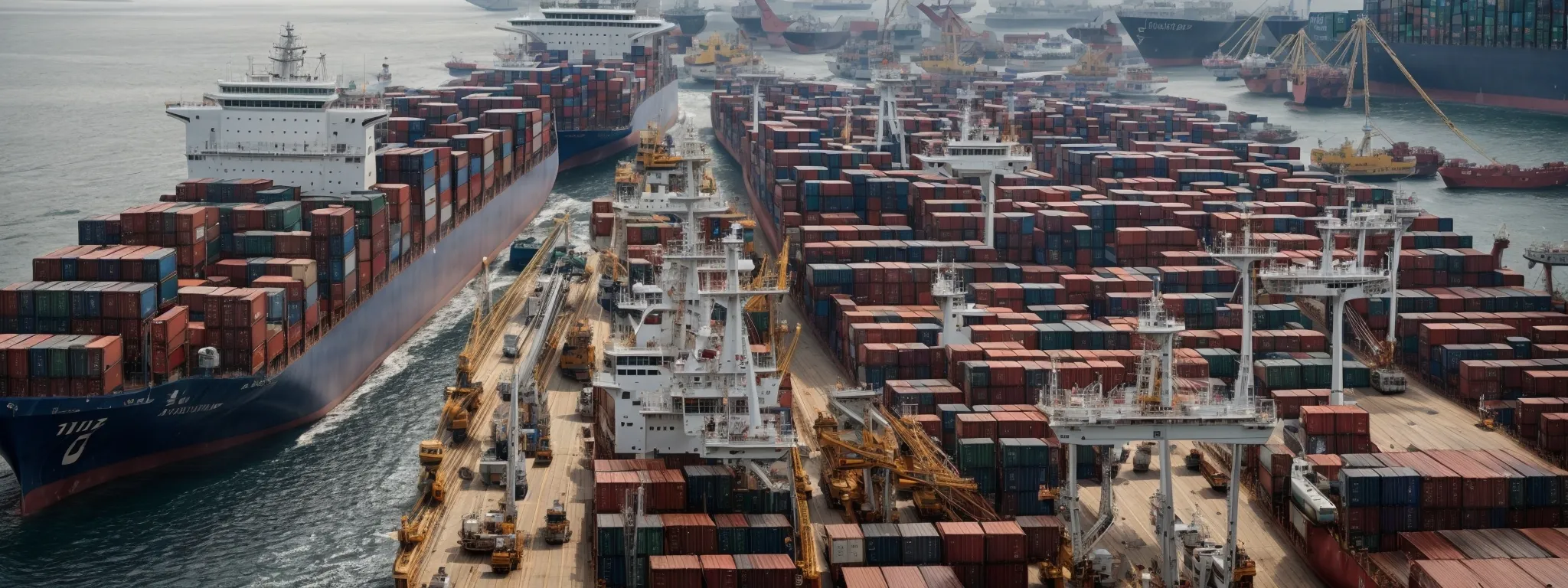
As a vessel requires authorization to traverse international waters, so too does an Importer of Record need the proper licensing to navigate the complexities of global trade.
Embarking upon this voyage demands a comprehensive understanding of the certifications and permits integral to the import process.
Mastery over the intricacies of obtaining an import license ensures the Importer of Record’s standing as a reputable and compliant navigator of international commerce, deftly steering the ship of business through a sea of regulatory requirements and establishing a secure harbor at the destination.
Understanding Necessary Certifications and Permits
Securing the requisite certifications and permits can be likened to a ship’s crew readying for voyage across a tempestuous sea of bureaucracy. It is incumbent upon the Importer of Record to obtain these vital credentials, ensuring their vessel—a cargo laden with ambitions of trade—complies with every statutory requirement of the destination harbor.
In the realm of global commerce, the Importer of Record must brandish permits as a knight wields their shield, armoring their operations against the regulatory dragons that might thwart entry into foreign markets. This protective gear, consisting of import licenses, inspection approvals, and other authorizations, is not merely decorative; it is central to the quest of delivering goods to the eagerly awaiting realm beyond border gates.
How to Obtain an Import License
To obtain an import license, the would-be Importer of Record must approach the pertinent government authorities with a suite of well-prepared documentation. The ritual of application involves demonstrating the company’s capability and integrity to handle importation, including a comprehensive review of business registrations and tax compliance status.
Depending on the destination country and the nature of the imported goods, additional certifications may be required to satisfy the unique import regulations, such as safety standards or environmental considerations. This often necessitates a meticulous dialogue with agencies overseeing trade, a process aided by an expert customs broker or a dedicated importer of record service provider.
The Role of Customs Brokers in Supporting Importers of Record

As voyagers through the complex waters of global trade, company and individual importers alike are often compelled to seek the navigational expertise of a customs broker.
These seasoned pilots of commerce offer their astuteness in unison with Importer of Record services, acting as the coxswains to steer through the regulatory eddies and currents of international shipments.
Considered pivotal when charting through the territories of import regulations, customs brokers utilize their comprehensive knowledge to avert potential obstacles, ensuring a seamless passage for the goods bound for foreign shores.
Their specialized services unfurl the sails for Importers of Record, allowing them to harness the favorable winds of compliance and efficiency, thus setting the stage for discussions on when to engage these crucial allies and the spectrum of services they provide.
When to Engage a Customs Broker
Enlisting the expertise of a customs broker is a strategic maneuver for any importer, especially when the intricacies of trade regulations loom like an intricate web over international transactions. A prudent company or practitioner will invoke the services of a broker when the demands of compliance overshadow the breadth of their in-house expertise.
Customs brokers become indispensable when importers wrestle with the complexities of rapidly changing trade agreements, such as those introduced by USMCA, or when products require special import measures and compliance with agencies like the FDA: It is at such pivotal junctures that the need to engage a customs broker crystallizes into action.
| Complexity Level | Engagement Rationale | Customs Broker Role |
|---|---|---|
| High Regulatory Complexity | In-house expertise is limited | Interpret and apply the latest trade regulations |
| Special Product Requirements | Special import measures or compliance needed | Navigate FDA requirements and other agency regulations |
Services Provided by Customs Brokers for IORs
In the vibrant realm of international commerce, customs brokers stand as indispensable architects for Importers of Record, crafting the structural integrity of trade with their portfolio of services. They provide expert assistance in navigating customs regulations, ensuring each shipment adheres to the destination country’s meticulous standards, thus fortifying the Importer of Record’s compliance framework.
Customs brokers lend their prowess to demystify the complexities of tariff codes and import duties, a service that acts as a compass leading Importers of Record through the dense fog of international trade laws. Their ability to expedite the customs clearance process serves as a beacon of efficiency, ushering goods into new markets with precision and care that parallels the delicate touch of a master jeweler setting the finest gem.
Managing Importer Security Filing and Compliance
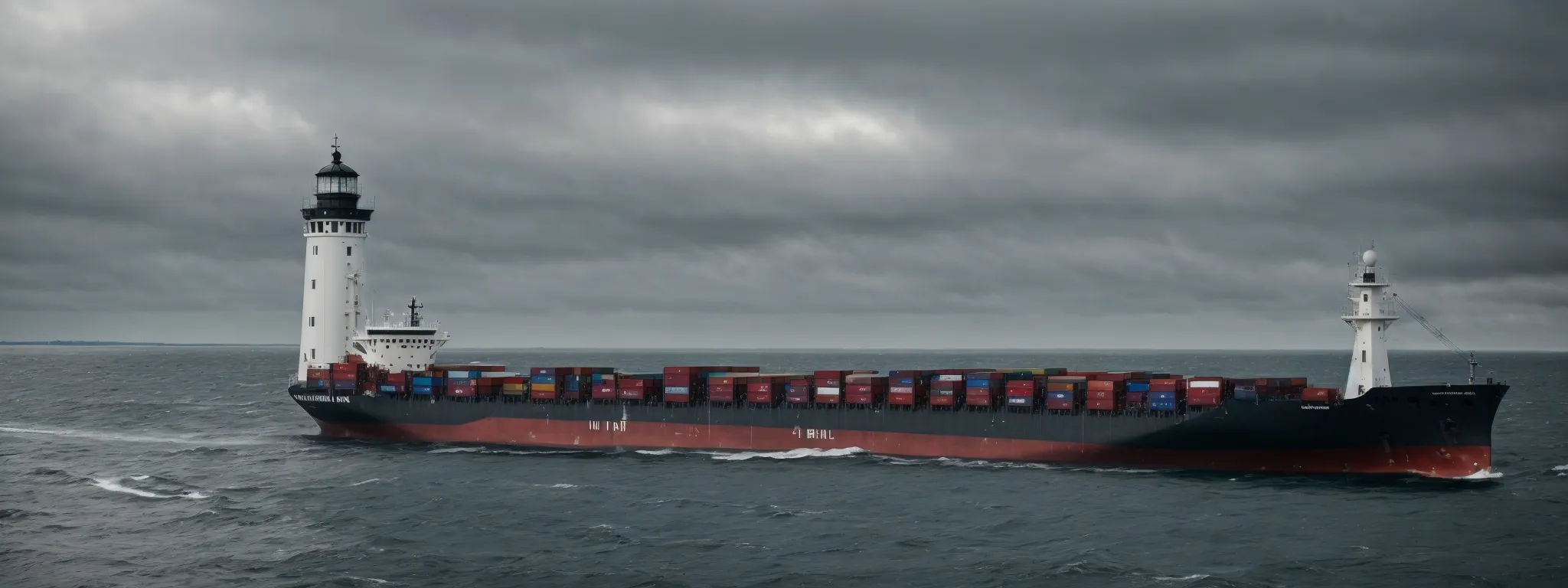
As the sentinel standing watch over the critical pathways of ocean freight, the Importer of Record bears the mantle of assuring that Importer Security Filing (ISF) is not merely an afterthought but a keystone in the arch of international logistics.
With the vastness of the sea as their province, companies and individual importers must prioritize ISF compliance as a beacon of safety and legality, ensuring no cargo vessel ventures into the American harbors without this electronic manifest.
It is through the diligent observation of ISF guidelines that the Importer of Record transforms a potential odyssey laden with complexities into a streamlined voyage, guarded against the turbulent waves of customs violations and costly delays.
The Importance of ISF Filing for Ocean Shipments
The logistics of ocean freight are a testament to the critical role of the Importer of Record whose acumen ensures the proper filing of Importer Security Filing (ISF). ISF compliance operates like a beacon, guiding international shipments through the murky complexities of U.S. import regulations and preventing the shadows of delay that stem from non-compliance.
Failure to file the mandatory ISF can be likened to a ship navigating without its north star: disoriented and prone to the perilous repercussions of hefty fines and disruptions. The Importer of Record stands as the vigilant overseer, ensuring every oceanic consignment reaches its harbor of hope within the statutes prescribed by customs authorities:
| ISF Component | Significance | IOR’s Enforcement |
|---|---|---|
| Timely Submission | Prevents Port Delays | Adherence to 24-hour Rule prior to lading |
| Complete Accuracy | Reduces Risk of Penalties | Meticulous Verification against shipment details |
Guidelines for ISF Compliance
The lore of Importer Security Filing (ISF) is brimming with prescriptions, each a vital spell to conjure unhindered passage through the realms of U.S. ports: Importers of Record must wield these guidelines with meticulous care. It begins with the sacred 24-hour rule – a decree mandating that ISF documentation be submitted to Customs and Border Protection no later than a day before the cargo is laden aboard a vessel bound for the United States.
| ISF Requirement | Description | Effect on Import Process |
|---|---|---|
| 24-Hour Rule | Submission before lading | Prevents shipping delays |
| Accuracy of Information | Detailed cargo description | Reduces risk of holds and penalties |
| Amendment Filing | Updates to ISF post-submission | Ensures current data and compliance |
Guardians of commerce, the Importers of Record, must also ensure that the treasure-trove of information they submit is as accurate as the maps used by ancient mariners: This commitment to precision forestalls the twin dangers of penalties and cargo holds, thereby upholding the sanctity of the supply chain.
Challenges Faced by Importers of Record
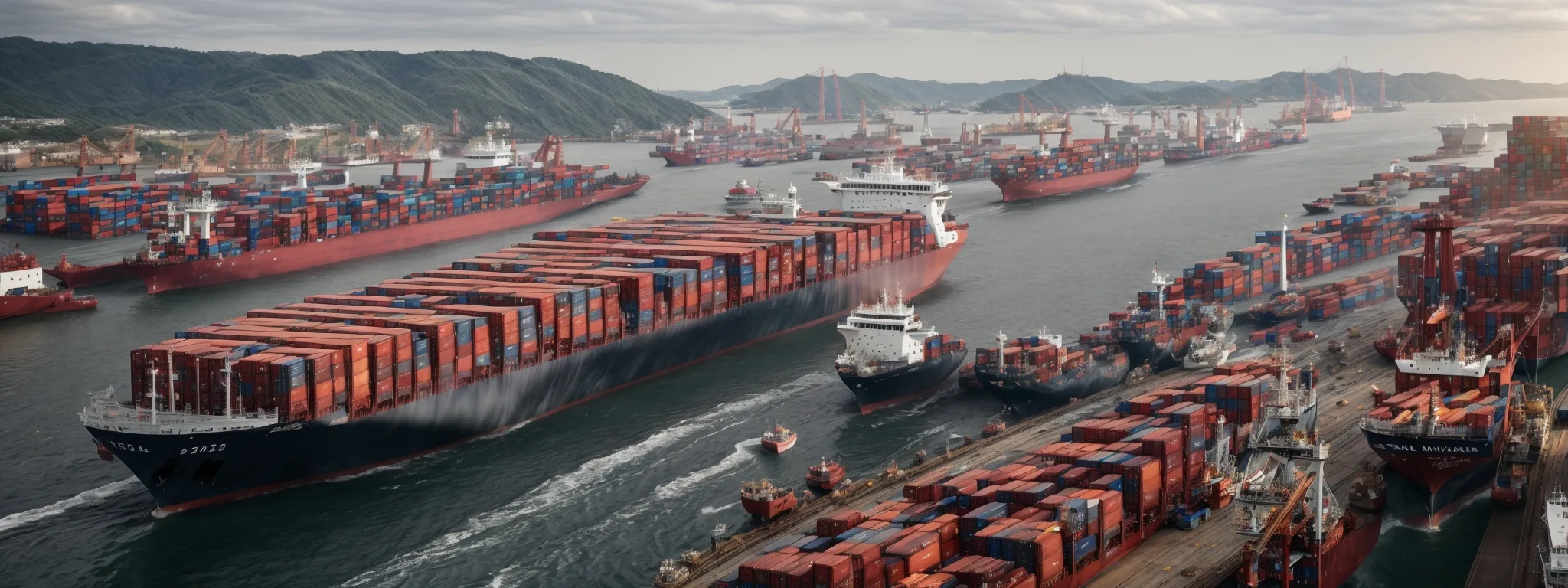
As the very heart of global commerce pulsates with an ever-changing array of rules and restrictions, Importers of Record face the formidable task of charting a course through this dynamic landscape.
Confronted by the twin specters of navigating quotas and the rigorous customs examinations, these trade stewards wield their expertise like cartographers of old, drawing routes on the complex map of international trade.
Each decision carries weighty financial implications, from the additional costs that may arise during meticulous customs inspections to the strategic maneuvering required to comply with trade restrictions.
This compelling tapestry of challenges underscores the pivotal role of an Importer of Record in securing the seamless flow of goods across the mosaic of international borders.
Navigating Quotas and Restrictions
For an Importer of Record, navigating the choppy seas of international quotas and restrictions is akin to threading a needle while sailing amidst turbulent waves. This role demands a keen awareness of variable ceilings on product quantities and the vigilance to adapt to sudden policy shifts, ensuring imports adhere to the fluctuating constraints imposed by the destination country’s customs authorities.
The obligation of an Importer of Record to monitor and adjust to trade restrictions is a delicate dance with global policy. It requires an intimate knowledge of governmental stipulations regarding certain goods, and the nimbleness to maneuver the supply chain accordingly, thus preventing the vessel of commerce from drifting into the doldrums of legal infractions.
Addressing Customs Examinations and Associated Costs
The Importer of Record is akin to a seasoned scout venturing into unknown territories, anticipating the rigorous inspections that customs examinations entail. On the precipice of entry into a destination country, they prepare for potential scrutiny, knowing it may attract additional costs for storage, demurrage, and detention, all of which must be meticulously planned for within the financial moorings of the import venture.
With an astute eye on the sustenance of trade flow, the Importer of Record navigates customs examinations with precision, cognizant that such assessments may inflate the overall expense of the import operation. They act swiftly to present required documentation and resolve any queries by customs officials to mitigate financial implications, ensuring an expeditionary yet cost-effective passage through the borders of international commerce.
Strategic Considerations for Importer of Record Operations

In the ceaseless dance of international commerce, an Importer of Record (IOR) serves as the vital conductor, orchestrating the rhythm and flow of goods across the global stage.
This role is an art in agility, demanding not only a comprehensive grasp of legalities and regulations but also an expertise in steering the supply chain with deft precision.
The decision to streamline operations internally or partner with a third-party IOR service provider is a strategic crossroad, standing at the nexus of efficiency and regulatory compliance.
As an alignment of company resources and the complex machinery of international trade, these considerations define the efficacy of an IOR’s performance in the swirling ballet of global markets.
Streamlining the Global Supply Chain as an IOR
In the grand chess game of international logistics, the Importer of Record stands as the grandmaster, deftly maneuvering through the intricate global supply chain. Their strategic foresight condenses sprawling trade routes into streamlined channels, facilitating swift and efficient transport of goods to their international destinations.
Embracing the role of a vanguard, an adept Importer of Record deploys advanced technological tools and networks to ensure that the supply chain operates with clockwork precision. This proactive stance in presiding over logistical operations fortifies the path for goods to traverse borders with minimal friction, heralding an era of unimpeded commercial flow.
Evaluating the Need for Third-Party IOR Services
For businesses entangled in the vast web of global trade, one milepost on the road to success is the determination of whether to enlist third-party Importer of Record (IOR) services. Weighing this decision is a study in balance, aligning the scale of one’s trade operations with the proficiency of specialized service providers adept in the alchemy of customs compliance and import regulations.
Companies may lean on the wisdom of third-party IOR services to transmute the leaden complexity of import procedures into the gold of efficient supply chain navigation. Outsourcing this monumental task empowers entities to harness an expert’s intimate knowledge of customs intricacies, alleviating the burden of mastery over ever-shifting international trade laws and protocols.
Establishing a Proactive Approach as an Importer of Record
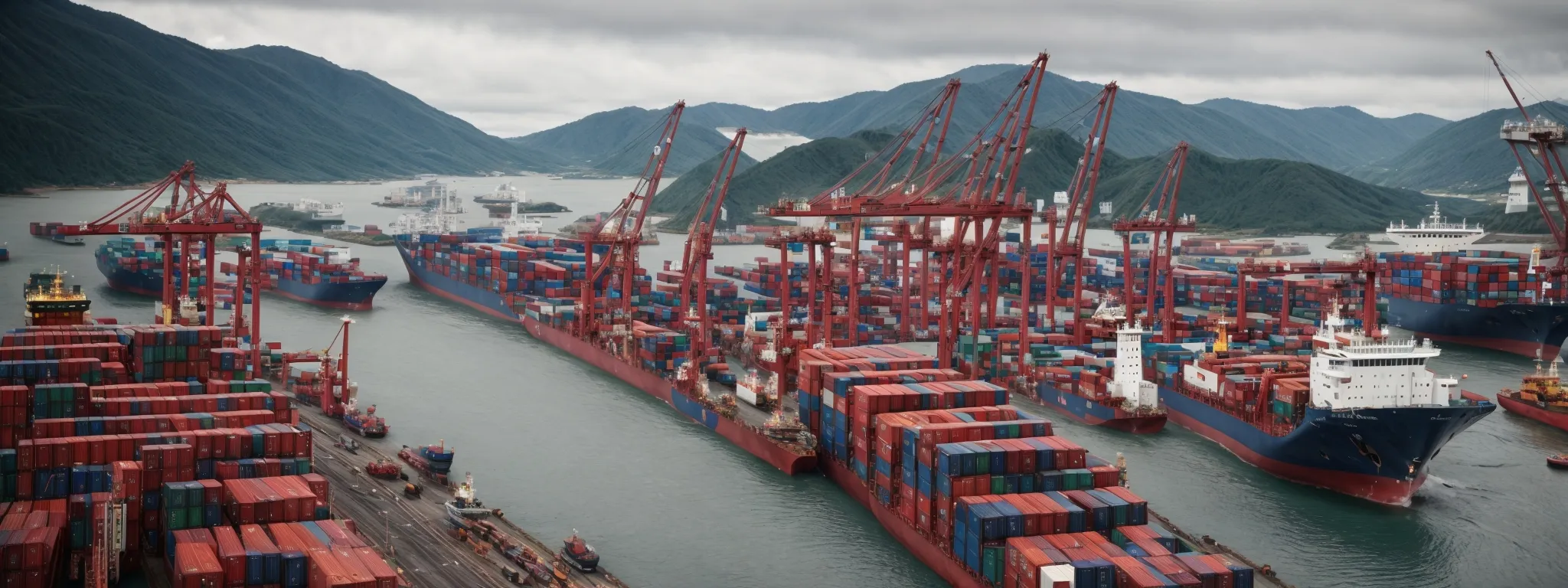
In the sprawling bazaar of global commerce, the Importer of Record stands as a sentinel at the gates of international trade, their vigilance a cornerstone in the realm of transactional integrity.
Embarking on a journey that demands both foresight and acumen, these guardians adapt and evolve, aligning their strategies with the shifting sands of regulatory frameworks and risk landscapes.
Through a proactive ethos, they not only anticipate the tides of legislative change but also engrave best practices into the bedrock of their import processes, ensuring the vessels of their cargoes emerge unscathed from the unpredictable tempests of cross-border exchange.
Keeping Ahead of Regulatory Changes
In the ceaselessly shifting waters of international trade, an Importer of Record must be as alert and forward-looking as a navigator scanning the horizon for signs of change. By maintaining a vigilant eye on the oscillating tides of trade agreements and customs amendments, they not simply preserve the margins of compliance but carve a direct and unimpeded channel towards successful importation.
Establishing adaptive procedures and cultivating strategic alliances with regulatory experts positions the Importer of Record as the architect of resilience against the tremors of legislative transformation. This proactive stance is a bulwark, safeguarding the smooth transition of goods across the global stage and reinforcing the Importer’s role as an adept harbinger of trade efficacy.
Best Practices for Risk Management in Import Processes
In the grand tapestry of global trade, an Importer of Record (IOR) weaves the intricate fabric of risk management into every import process with studious care. By employing a comprehensive strategy that identifies potential hazards and implements mitigating protocols, the IOR shields the import operation from the costly pitfalls of non-compliance and logistical delays.
The vigilant Importer of Record constructs a fortification against unforeseen risks by securing a robust cargo insurance policy and conducting regular audits of the supply chain. This due diligence ensures that, even in the face of volatility, the IOR’s vessel of commerce remains unassailable, steadfastly anchored in the harbor of regulatory safety:
| Risk Management Strategy | Function | Benefit |
|---|---|---|
| Cargo Insurance | Hedges against transit loss or damage | Financial protection and peace of mind |
| Supply Chain Audits | Assesses and improves operational effectiveness | Prevents disruptions and enhances compliance |
Moreover, the Importer of Record fortifies their defenses by aligning with seasoned experts who bring a breadth of knowledge to the complexities of international customs law. These alliances embolden the IOR’s capacity to anticipate and capably navigate shifts in the regulatory climate, thereby honing a strategic edge in managing import-related risks.
Frequently Asked Questions
What is the role of an importer of record in global trade, and why is it important?
The importer of record stands as the pivotal bridge linking international markets, a sentry who ensures that the rivers of commerce flow smoothly while adhering to the legal tapestries woven by destination countries. It is vital because it shoulders the responsibility of meeting all regulatory requirements, thus safeguarding both the supplier’s ambitions and the consumer’s expectations.
What are the key responsibilities of an importer of record and how do they impact the import process?
The importer of record shoulders a manifold of tasks, each heavy with the weight of legal and logistical responsibility. They act as the vanguard, ensuring that every product’s journey from supplier to consumer is paved by diligent adherence to the labyrinthine customs regulations and that all import duties are settled, like leaves falling gracefully to the ground, rendering each transaction as smooth as a tranquil stream.
What are the licensing requirements for individuals or companies looking to act as importers of record?
As custodians of a nation’s commerce, an individual or a company aspiring to assume the mantle of an importer of record must adhere to a complex tapestry of regulations. These essential licensing requirements serve as the invisible thread ensuring the seamless weave of international trade, encompassing proof of business registration or individual identification, possession of a valid importer number, and often, obtaining power of attorney to act on behalf of the owner of the goods.
How do customs brokers support importers of record in navigating customs regulations and ensuring compliance?
Customs brokers, as navigators steering through a sea of regulations and compliance obligations, extend their expertise to importers of record, ensuring their cargo reaches the destined port safely within the labyrinth of customs law. By interpreting the complex customs tariff and administering the necessary entry documents with precision, they act as essential intermediaries, mitigating the risk of a compliance tempest and anchoring the import process firmly in the harbor of government expectations.
What are some of the challenges faced by importers of record and how can they be mitigated?
Navigating the labyrinthine intricacies of global trade, importers of record (IOR) confront multifaceted challenges, such as adhering to intricate customs regulations and managing the unpredictability of international supply chains. These challenges can be mitigated through meticulous planning, partnership with seasoned customs brokers, and by leveraging IOR services that specialize in demystifying the complexities of cross-border transactions.
Conclusion
In conclusion, the Importer of Record (IOR) plays an indispensable role in the seamless execution of global trade, acting as the custodian of compliance and the linchpin of accountability.
Through their expert navigation of intricate customs laws and their rigorous attention to detail in document management, IORs enable goods to traverse international borders smoothly.
They balance legal acumen with strategic operational considerations, often in partnership with customs brokers, to ensure that every transaction adheres to the regulatory demands of the destination country.
As global trade regulations continue to evolve, IORs must remain proactive, anticipating changes and establishing best practices to mitigate risks.
Their ability to adeptly manage import duties, taxes, and Importer Security Filing (ISF) further cements their role as vital navigators charting the complex waters of international commerce.
Our firm is always ready to represent you on issues regarding international trade disputes. Contact our Office Today !

